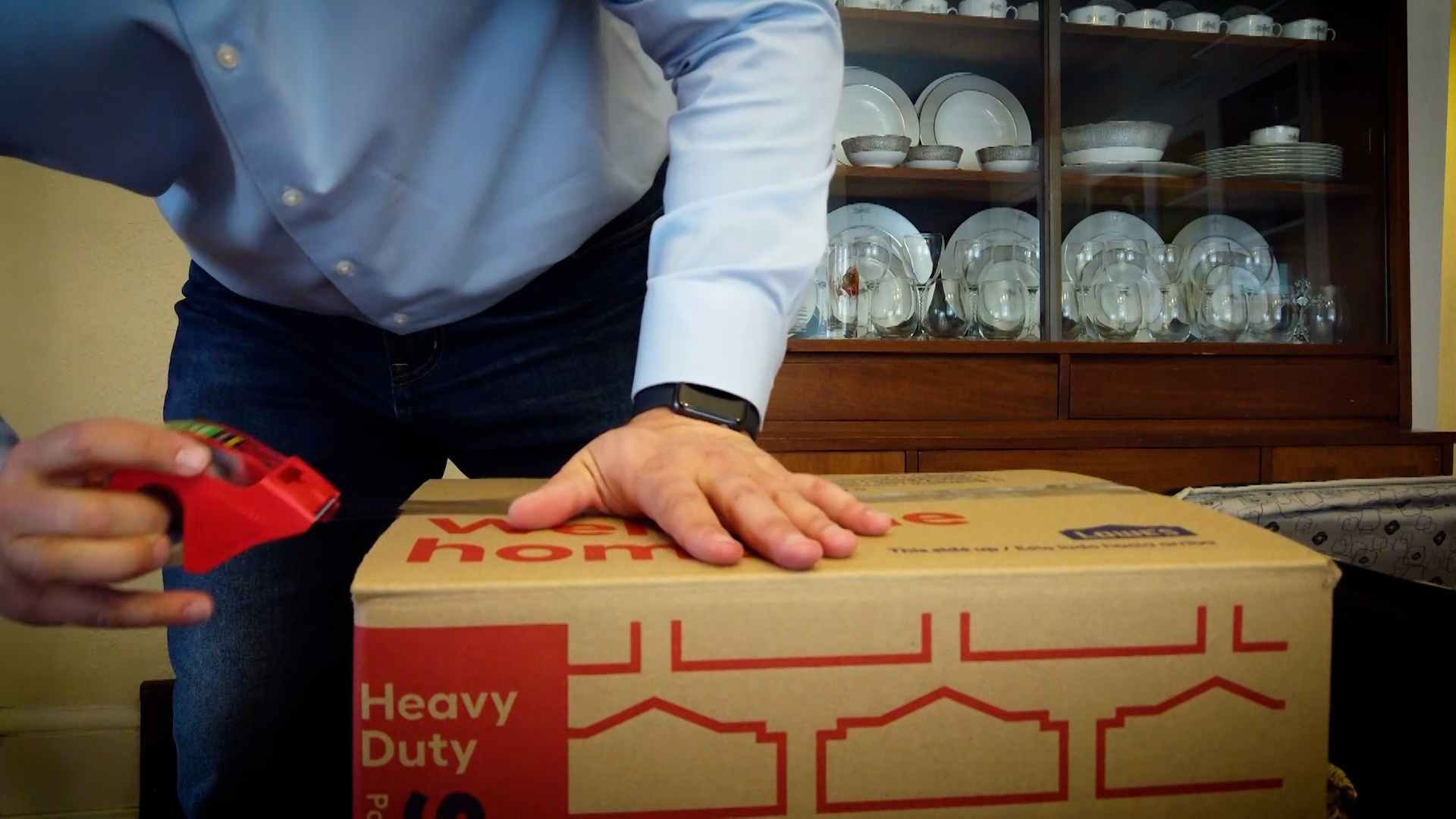Utah’s Extremists: KSL Investigates Efforts To Find & Stop Them Before They Strike
Feb 11, 2021, 10:48 PM | Updated: Jun 19, 2022, 9:57 pm
SALT LAKE CITY, Utah – In a data-driven society, some in law enforcement find this data concerning: FBI numbers show 2019 as the deadliest year for domestic extremist violence since the Oklahoma City bombing in 1995. Thirty-nine people were killed, in five separate attacks.
The FBI and U.S. Department of Homeland Security warn that domestic terrorism is a greater threat than international terrorism. And the two government agencies say it’s been that way for the past several years at least. In its Homeland Threat Assessment released in October 2020, the U.S. Department of Homeland Security concluded that “racially and ethnically motivated violent extremists—specifically white supremacist extremists (WSEs)—will remain the most persistent and lethal threat in the Homeland.”
Last year at this time, the FBI reported more than 1,000 active domestic terrorism investigations in all 50 states.
Simple math will tell you Utah is one of those states.
And stopping the acts of terrorism before they strike is a challenge.
A big challenge.
Threats
Exactly four weeks ago, on Jan. 14, Rep. John Curtis, R-Utah, received a threat at his office in Provo.
Pinned to the outside of his door was a photocopied picture of himself, with a pair of skull and crossbones covering his eyes.
Email, phone call, attending a town hall meeting, I promise there are better ways to voice your opinions with our office. https://t.co/uK0xrb6lV7
— Rep. John Curtis (@RepJohnCurtis) January 14, 2021
Written on the paper were the words, “WANTED FOR TREASON” and went on to say, “For resisting the true electoral victor Trump & willful failure to stand to object to the corrupt & vitiated states!”
Eight days prior, the threat at our nation’s Capitol went well beyond a single sheet of paper.
Curtis was there when rioters stormed the building. While he did not believe his life was in danger that day, he’s quick to point out, others did.
“There are members of Congress who thought their life was in peril at that moment and continue to feel that way,” he said.
For weeks, authorities have been sifting through video and pictures and social media, trying to find out who was there, their specific intentions, and what the rioters storming the capitol represent.
In a word: “Extremists, right?” said Curtis. “Clearly extremists.”
Extremists vs. Terrorists
Extremists are defined as those with a “belief in and support for ideas that are very far from what most people consider correct or reasonable” (Merriam-Webster).
What the country witnessed Jan. 6th, by definition, goes beyond extremism.
“There is a huge spotlight on domestic terrorism,” said Karl Schmae, a former FBI special agent, who says the line between an extremist and domestic terrorist is the use of threats and violence.
Threats and violence, which according to the FBI, “is used to further political, religious, social, racial, or environmental ideological goals.”
Threats and violence seen in city streets throughout the summer.
Threats and violence seen at the Capitol.
Schmae says, extremists-turned-terrorists often believe they are obeying a higher law.
“They see themselves as patriots. They see themselves as defending the country. That their cause is righteous. Their cause is holy. They’re on the side of goodness and everyone else is evil,” he said.
U.S. Terrorism
Over the last decade, we have seen horrifying examples of this: Deadly attacks inside schools, churches and temples. A mass killing inside the Emanuel African Methodist Episcopal Church, in Charleston, South Carolina in 2015. A shooting at a Sikh temple in Wisconsin in 2012. The attack of a Jewish community center near Kansas City in 2014.
And the list goes on.
Much of the violence can be tied to extremist ideologies or groups, but there is a common thread in almost every case: A lone wolf carries out the attack.
“That is the nightmare,” says Schmae, “That’s the thing that kept me up at night when I was a supervisor. How do we stop the individual?”
The Greatest Threat
Just five months ago, FBI Director Christopher Wray testified before the congressional committee on Homeland Security and made it clear, “The greatest threat we face in the Homeland is that posed by lone actors radicalized online who look to attack soft targets with easily accessible weapons.”
And we have seen it in Utah. In 2014, 21-year-old Macon Openshaw pleaded guilty to a religiously motivated attack in 2012, when he fired three rounds into a Salt Lake City synagogue. Fortunately, nobody was inside. In 2014, Keith Max Pierce took a plea deal on a weapons charge, after the FBI says he stockpiled bomb-making materials, planned to blow-up government buildings and kill members of Congress.
And then there is William Keebler. In 2016, the leader of a Utah militia group tried to blow-up a Bureau of Land Management cabin, with a pipe bomb.
He was caught by undercover FBI agents, posing as militiamen.
Schmae says those FBI informants were crucial to stopping Keebler.
“It’s huge,” says Schmae, “It could be an FBI agent going undercover himself, which is very risky, or you’ve got to recruit somebody within the group.”
And while embedding agents into extremist groups has proven effective, the bigger challenge is sniffing out the one who’s secretly planning violence.
The lone wolf.
The Lone Wolf
“Identifying them is very difficult,” says Capt. Tanner Jensen, Director of the Statewide Information Analysis Center (SIAC).
His job is violence prevention.
He and his team spend a lot of time online sniffing out extremist organizations and looking for “the one.”
“We don’t have that silver bullet to be able to secretly, as Hollywood would show, identify accounts and collect information,” he said.
Jensen says the most valuable information comes from family or friends, in what they call “leakage.”
That’s the communication to a third party, of the intent to do harm and can be anything from off-the-cuff comments, to letters, diaries, emails, voice mails, blogs, journals, internet postings, tweets, text messages to video postings.
In short, “leakage” is information revealed to people who are not intended to have that information.
“Rarely is it going to jump in front of our faces that somebody’s planning a legitimate attack,” said Jensen, “But those small little clues are what’s so important to us.”
Raw information reports in Utah show over the past three years (2018, 2019, 2020), 680 cases of threat reporting were analyzed by SIAC, including gun violence, cyber security, gang violence and threats of terrorism. One of those reports analyzed: a 50-year-old Salt Lake City woman in possession of a biological agent of mass destruction.
The FBI flagged Janie Lynn Ridd about a year ago, for buying the biological agents on the dark web. She purchased a bacteria that can cause staph infections.
In the end, the investigation determined she was not planning mass destruction, but was plotting against her roommate. She was sentenced to prison.
But here’s the thing: even those accused of domestic terrorism, can never be charged with domestic terrorism.
Domestic Terrorism Charges Non-Existent
“There’s no federal statute against that,” says Schmae, “Which is interesting, because there is for a lot of other crimes. There is for international terrorism, but there’s not for domestic terrorism. It makes it really hard to investigate.”
Hard to investigate. And hard for federal prosecutors to use one blanket charge, possibly carrying more weight.
In the end, large-scale attacks, like what we saw Jan. 6th in Washington, D.C. are not the norm. But it’s prompted a warning from Homeland Security: As long as there’s a belief the election was stolen, as long as lawmakers impeach the former president, there is concern of threats. There is concern of violence. And there is concern a lone wolf will do more than simply tape a photoshopped picture to a U.S. Congressman’s door.
“I also feel people like this really are cowards,” said Curtis.
Cowards, that regardless of all the law enforcement intel out there, are still some of the most difficult to catch.
“If you’ve got a guy who’s sitting in his basement not talking to anybody,” says Schmae, “he’s got no criminal history, he’s stealthy, he’s off the radar – how do you stop that?”
















